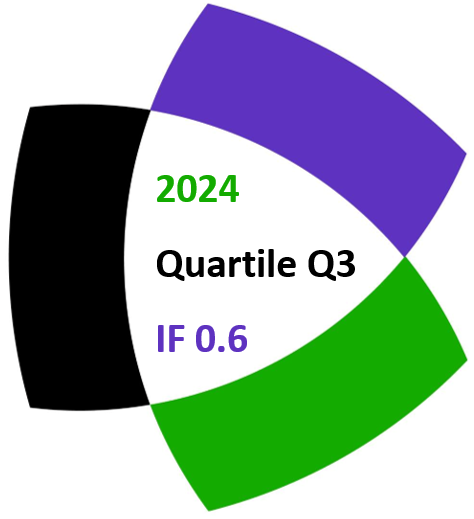Marco Ripà
Notes on Number Theory and Discrete Mathematics
Print ISSN 1310–5132, Online ISSN 2367–8275
Volume 25, 2019, Number 2, Pages 68-75
DOI: 10.7546/nntdm.2019.25.2.68-75
Full paper (PDF, 1501 Kb)
Details
Authors and affiliations
sPIqr Society, World Intelligence Network
Rome, Italy
Abstract
We offer the first proof of Ripà’s 3 × 3 × 3 × 3 Dots Problem, providing a general solution of the 3k case (3k points arranged in a 3 × 3 × … × 3 grid), for any k ∈ ℕ − {0}. We give also new bounds for the n × n × n problem, improving many of the previous results.
Keywords
- Graph theory
- Topology
- Combinatorics
- Four-dimensional
- Nine dots
- Creative thinking
- Segment
- Connectivity
- Outside the box
- Upper bound
- Lower bound
- Point
- Game
2010 Mathematics Subject Classification
- 91A43
- 05C40
References
- Kihn, M. (1995). Outside the Box: The Inside Story. FastCompany.
- Loyd, S. (1914). Cyclopedia of Puzzles. The Lamb Publishing Company, p. 301.
- Lung, C. T., & Dominowski, R. L. (1985). Effects of strategy instructions and practice on nine-dot problem solving. Journal of Experimental Psychology: Learning, Memory, and Cognition, 11 (4), 804–811.
- Ripà, M. (2016). The n × n × n Dots Problem optimal solution. Notes on Number Theory and Discrete Mathematics, 22 (2), 36–43.
- Ripà, M. (2014). The Rectangular Spiral or the n1 × n2 × … × nk Points Problem. Notes on Number Theory and Discrete Mathematics, 20 (1), 59–71.
- Ripà, M., & Bencini, V. (2018). n × n × n Dots Puzzle: An Improved “Outside The Box” Upper Bound, viXra, 25 Jul. 2018, Available online: http://vixra.org/pdf/1807.0384v2.pdf.
- Sloane, N. J. A. (2013). A225227. The Online Encyclopedia of Integer Sequences, Inc. 2 May. 2013. Web. 25 Aug. 2015, Available online: http://oeis.org/A225227.
- Sloane, N. J. A. (2015). A261547. The Online Encyclopedia of Integer Sequences Inc. 24 Aug. 2015. Web. 22 Sep. 2015, Available online: http://oeis.org/A261547.
Related papers
Cite this paper
Ripà, M. (2019). The 3 × 3 × … × 3 Points Problem solution. Notes on Number Theory and Discrete Mathematics, 25(2), 68-75, DOI: 10.7546/nntdm.2019.25.2.68-75.


